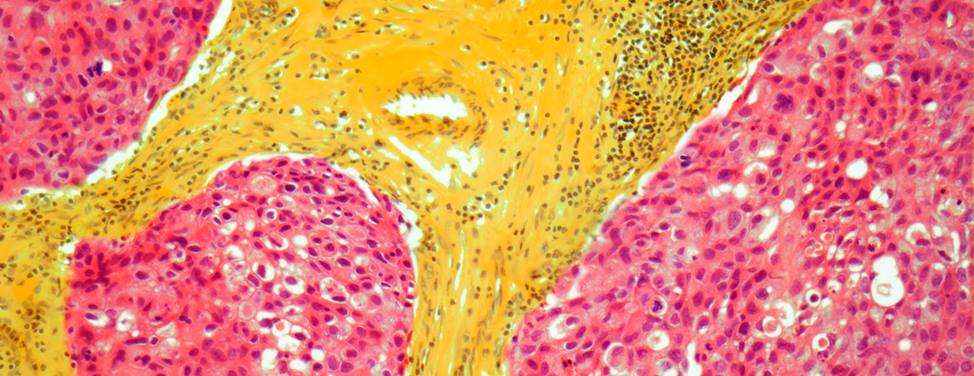
Navigating Your Path to Breast Care & Concerns
Every woman is at risk for the development of breast cancer. However, there is a select group of women who have been identified by national standards as being at an elevated risk. At the UCSF Breast Care Center, our goal is to develop better ways to provide women at high risk with the most up-to-date research and information regarding breast cancer prevention.
Breast Cancer Prevention Program
The Breast Cancer Prevention Program at the UCSF Helen Diller Family Comprehensive Cancer Center is a multidisciplinary prevention and screening program created by the Breast Care Center and the UCSF National Center of Excellence in Women's Health.
This innovative clinic provides access to experts in breast cancer prevention, including physicians, nurse practitioners, cancer risk and genetic counselors, researchers and a dietitian. The program was designed to meet the needs of women at increased risk of developing breast cancer due to family medical history, previous diagnosis or difficult breast exams caused by fibrocystic breasts.
The Breast Cancer Prevention Program is for women with:
- Family history of breast cancer, either on their mother's or father's side of the family
- Previous diagnoses of lobular carcinoma in situ (LCIS) or atypical hyperplasia of the breast
- Previous history of breast cancer either ductal carcinoma in-situ (DCIS) or invasive breast cancer, who are at least five years out from treatment
- Difficult breast exam due to fibrocystic breasts
For more information about the program, please contact the Breast Care Center at (415) 353-7070.
Education Material for Women at High Risk
We hope to provide you with information and support that will enable you to experiment and to explore ways of feeling better that best match your needs. Below you will find links to some of the educational information that is applicable to women who have been identified as being at high risk for the development of breast cancer. In addition, further information can be gathered at our UCSF Patient and Family Cancer Support Center or by talking with your doctor.
- UCSF Cancer Genetics and Prevention Program
- Lifestyle Changes for Breast Cancer Prevention
- Nutrition for Breast Cancer Prevention
- Hydration: Water and Health
- Exercise Program
- Guided Imagery
- Meditation
- Breast Self-Exams
- Mammograms
Clinical Trials
Clinical trials are formal, controlled protocols designed to test the effectiveness of new treatments, including novel drugs, types of intervention or combinations of therapy. There are clinical trials targeted to prevention.
If you are interested in obtaining more information on specific breast cancer clinical trials offered at UCSF Medical Center, please visit the clinical trial section on the UCSF Breast Care Center website. You also can visit the National Cancer Institute's CancerNet, where you will find access to PDQ, the NCI-sponsored database of clinical trials nationwide.
Note: The clinical protocols listed here are presented as an educational service to doctors and patients; they should not be interpreted as providing medical advice nor be used for the diagnosis or treatment of cancer or any other health problem. Enrollment is based on satisfying eligibility criteria; final determination for inclusion in a study is made solely at the discretion of the principal investigator.
Navigating Your Path to Breast Care:
- Navigating Your Path to Breast Care: I am Concerned About Breast Cancer
- Navigating Your Path to Breast Care: I Have a Lump or Abnormal Mammogram
- Navigating Your Path to Breast Care: I Am Newly Diagnosed With Breast Cancer
- Navigating Your Path to Breast Care: I Have Metastatic Breast Cancer
- Navigating Your Path to Breast Care: I Am in Follow-Up
- Navigating Your Path to Breast Care: I Would Like a Second Opinion
UCSF Health medical specialists have reviewed this information. It is for educational purposes only and is not intended to replace the advice of your doctor or other health care provider. We encourage you to discuss any questions or concerns you may have with your provider.




















